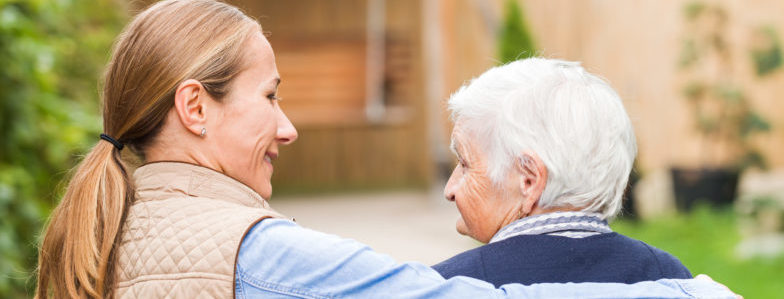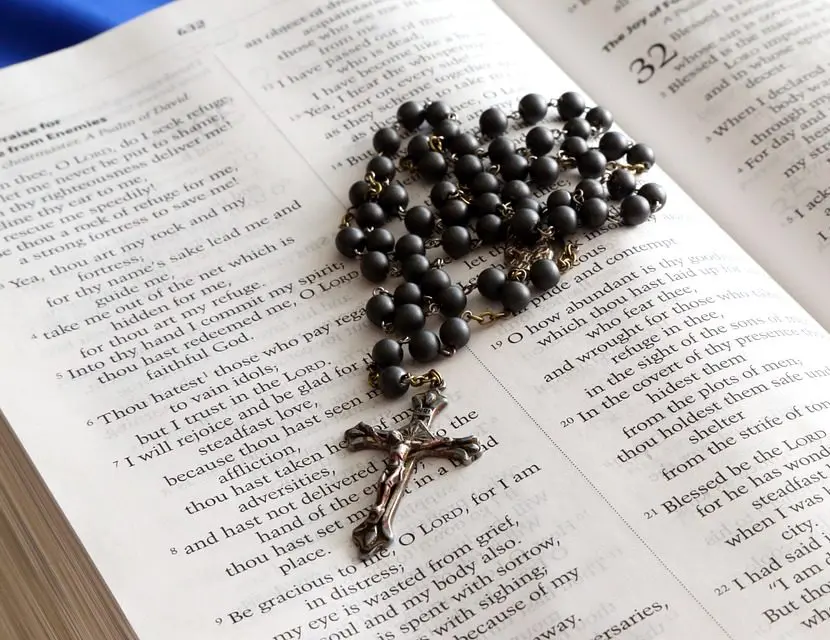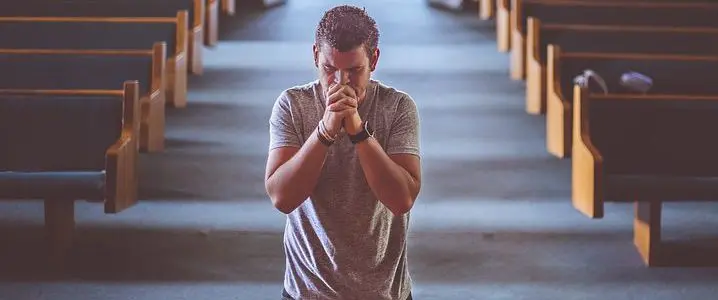Human life is sacred because from its beginning it involves the creative action of God…. God alone is the Lord of life from its beginning until its end: no one can under any circumstance claim for himself the right directly to destroy an innocent human being.
In other words, euthanasia causes or hastens a person’s death in order to alleviate suffering. Therefore, according to the Catechism, euthanasia is “morally unacceptable.”
We are all created in the image and likeness of God. He has a plan for every single one of us, and our lives belong to Him. We do not choose the day we are born, and we should not choose the day we leave this world. If we interfere with God’s plans for our lives, we begin a slippery slope that leads to worse evils.
When a loved one is sick, dying, disabled, or in pain, it is natural to want to alleviate that pain. Love is wanting what is best for the other person, and many people believe erroneously that what’s “best” or merciful is hastening that person’s death if he is suffering.
Indeed, some people believe that hastening a person’s death means that he will die “with dignity.” Six states, along with Washington, DC, have what they term Death with Dignity [2] laws. The lie is that we must die to retain our dignity. We do not. We all have inherent dignity given to us by God, and being injured, ill, or near death neither reduces nor degrades our dignity. Furthermore, voluntary euthanasia is a slippery slope which often prefaces the next stage, involuntary euthanasia (killing but without consent).

Euthanasia and the Culture of Death
St. John Paul II taught about the culture of death in Evangelium Vitae [3] when he said:
[It] is actively fostered [4] by powerful cultural, economic and political currents which encourage an idea of society excessively concerned with efficiency. Looking at the situation from this point of view, it is possible to speak in a certain sense of a war of the powerful against the weak: a life which would require greater acceptance, love and care is considered useless, or held to be an intolerable burden, and is therefore rejected in one way or another. A person who, because of illness, handicap or, more simply, just by existing, compromises the well-being or lifestyle of those who are more favored tends to be looked upon as an enemy to be resisted or eliminated.
This Culture of Death teaches people—especially naïve youth—that those who are weak or suffering have less value than those who are healthy. Furthermore, it teaches that suffering is something to be avoided at all costs. A culture consumed with perfection and derisive or disdainful of anything less so is one that will eventually collapse. When people can’t and don’t care for, love, and cherish all human beings, when they even consider “mercy killing,” —regardless of their age or abilities—they suffocate in selfishness which presages involuntary euthanasia (killing) for an ever-widening range of issues.
Suffering—physical, emotional, or even spiritual—is a part of everyone’s life. If we allow it, that suffering can have a redemptive quality [5] when we offer it up as a prayer for someone else or for a soul in purgatory. Our suffering unites us with Christ’s suffering on the cross and helps bring us closer to Him.

Those who are ill or suffering deserve our love, our respect, and our support. We must help them live their lives—until the very last moment—in the best way possible. Their existence should never be seen as a burden. Voluntary or involuntary euthanasia is never a “solution.” Yes, caring for someone who’s close to death or who is extremely disabled can be immensely difficult, but we are called to care for them out of the same love that Christ has for us. And, in that person, we must see the face of Christ.
A society steeped in the Culture of Death will continue to decline unless people are willing to effect change. Many states and many countries currently allow euthanasia, or physician-assisted suicide, but more are pushing for it, and as the Culture of Death solidifies its grip on us, more states will enact similar laws. And when more states allow it, making it seem normal, that sends a signal to people that it’s okay. They begin to equate legal with acceptable or moral.
Yet we know that, just because something is legal does not mean it’s moral. Once we forget that killing is immoral, we open the door to worse evils than euthanasia.
What’s Next on the Slippery Slope?
In countries like the Netherlands, where assisted suicide is legal, the slippery slope of euthanasia has led to an increasing number of patients who are choosing to end their lives not because of a physical illness, but because of mental illness. According to a BBC [6] report, “The vast majority of the 6,585 deaths from euthanasia in the Netherlands in 2017 were cases of people with a physical disease. But 83 people were euthanized on the grounds of psychiatric suffering.”

When laws are created with ambiguous wording, and “suffering” is left open to the interpretation of a physician, we are opening the door wider and wider [7] until we allow everyone in. As increasing numbers of people feel that they want to take control of their deaths, that they are burdens, that their suffering is too great, or that their family members would be “better off dead,” the Culture of Death’s tentacles gain a firmer grasp on us. Lies told repeatedly eventually become believed. If today we teach that there’s no value in someone because he has only weeks to live or because his mental illness is too severe, what will happen tomorrow? Will we begin to agree that those missing a limb are disposable? What about those who are blind or deaf? What about those who have diabetes or cystic fibrosis? When we see every imperfection as a reason to end someone’s life, we will never stop devaluing human beings. As has been shown every year, euthanasia deaths in the Netherlands increase, as do abuses [8], such as people euthanized without consent or for no real reason at all.
Yes, euthanasia is a slippery slope—one that leads to a slimy pit filled with the filth brought about by apathy, disdain, and selfishness. If we are not careful, we can easily lose control and find ourselves drowning in the muck.